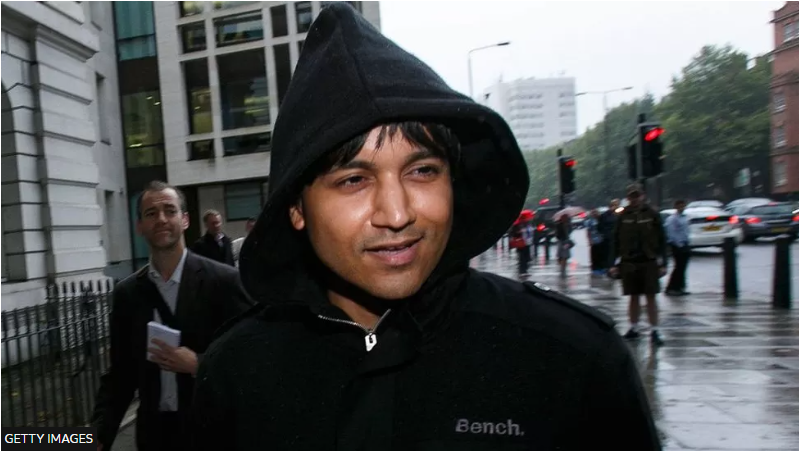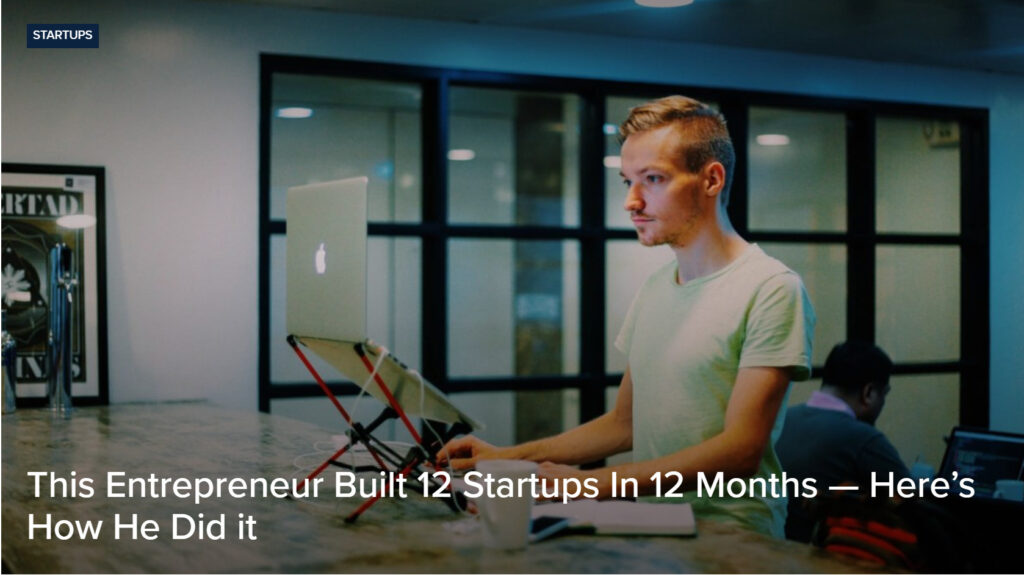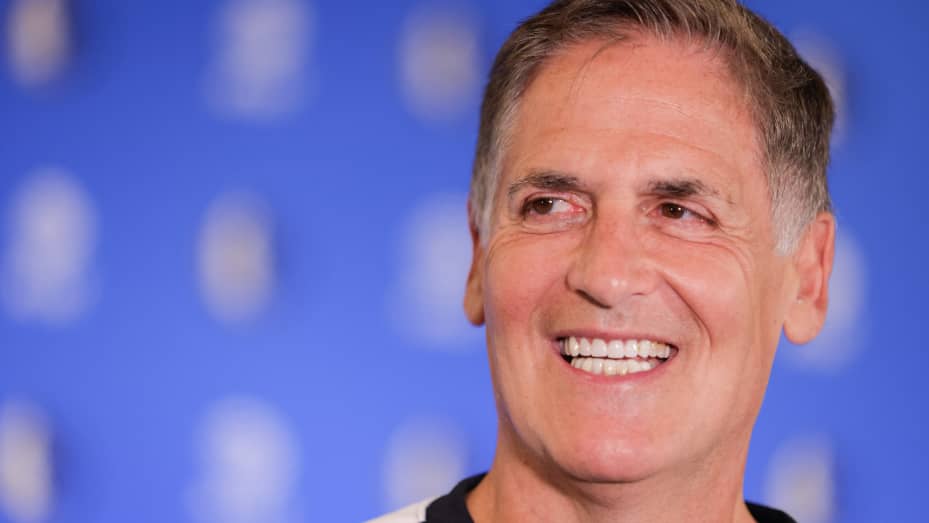In the world of mobile gaming, few stories are as compelling and cautionary as that of Dong Nguyen and his creation, Flappy Bird. This simple yet addictive game soared to incredible heights, only to bring its creator an overwhelming burden.
Dong Nguyen, a programmer from Hanoi, Vietnam, had a vision for mobile gaming: simplicity. In a market filled with complex and busy games, he sought to create something straightforward and accessible. This led to the birth of his company, .GEARS, and his journey into game development.
His first game, Shuriken Block, was simple – players tapped shurikens to block them from hitting characters. But it was his next creation, Flappy Bird, that would change everything. The game’s concept was simple: tap the screen to keep a bird afloat and navigate through green pipes. It was easy to learn but challenging to master, perfect for quick gaming sessions.
Despite its simplicity, Flappy Bird initially flopped, receiving little attention in its first few months. However, a sudden surge in popularity propelled it to the top of Apple’s App Store by the end of January 2014. Popular YouTubers like PewDiePie featured the game, further boosting its popularity. At its peak, Flappy Bird was bringing in $50,000 a day through ads.
But with fame came intense scrutiny and pressure. The media criticized the game’s addictive nature, and some accused Dong of using assets ripped from Nintendo games. The overwhelming attention, both positive and negative, began to take a toll on Dong. He struggled with the fame, unable to sleep or focus, and was hounded by reporters and fans.
The situation escalated when Dong started receiving messages from players and parents about the game’s addictive nature. Some messages were extreme, claiming the game caused job losses and family disputes. Dong, who had struggled with video game addiction himself, took these messages to heart.
In February 2014, Dong made a drastic decision: he removed Flappy Bird from the App Store and Google Play, despite its massive success. This led to a new wave of backlash, with some sending him death threats for removing the game. Rumors circulated that Nintendo was suing him, which Nintendo denied.
The void left by Flappy Bird’s removal was quickly filled by a plethora of clones, leading Apple and Google to reject new similar games. Dong did release a new version, Flappy Birds Family, for Amazon Fire TV, but it didn’t replicate the original’s success.
Dong Nguyen’s story is a stark reminder of the double-edged sword of fame in the digital age. His simple game, created in a quest for simplicity in a complex world, brought him more than he bargained for. It’s a tale that resonates with anyone who’s ever dreamed big, only to find the reality of success more challenging than the dream.
- FIFA to Millionaire, The $50m Bedroom Trader
He took on Wall Street from his parent’s bedroom and won, for a while…
In the high-stakes world of financial trading, where Wall Street giants and sophisticated algorithms dominate, the story of Navinder Sarao, a day trader who made millions from his parent’s bedroom in Hounslow, London, is not just remarkable but almost mythical. The two worlds of billion-dollar trades and living in your parent’s house seem miles apart but “Nav” as he was known managed to straddle them beautifully. At least for a while…

Navinder Sarao on his way to court Early Life and Background
Navinder Sarao’s story begins with his family’s journey from Punjab, India, to London, UK. Seeking better opportunities, they settled in Hounslow in 1982, a location chosen for its affordability due to its proximity to the airport. Sarao’s parents worked tirelessly in multiple jobs, a testament to their dedication to providing a better future for their children. This background laid the foundation for Sarao’s later achievements and his relentless drive. He wanted to give back to his parents and make them proud.
University Years and Introduction to Trading
Nav’s first taste of the world of trading began during his college years. While studying computer science and maths, he was intrigued by a roommate who successfully traded tech stocks using his student loan. A risky thing to do since students in the UK would have little money left for food if one trade went badly. However, this encounter sparked Sarao’s interest in the stock market, leading him to immerse himself in learning everything about trading. His obsession with the video game FIFA, where he ranked in the top 200 players worldwide, demonstrated his ability to deeply focus and strategize, skills that would later be pivotal in his trading career. He also learned how to analyse people and look for behavioural patterns — this would be the most crucial skill set that would go on to have huge consequences.
Early Trading
Despite initial losses, Sarao’s early trading experiences were crucial in building his understanding of the markets. His big break came when he responded to an advertisement seeking futures traders. This led him to a position at Futex, a company far from the glamour of Wall Street. It was here that Sarao began to refine his trading strategies, applying his analytical skills and pattern recognition abilities honed through years of gaming. He noticed certain people would place trades at the same time each day, once they realized why it is easier to “front-run” (place a trade before they do) and make a small profit each time. With enough leverage, this could be extremely profitable.
Developing a Unique Trading Strategy
Sarao’s approach to trading was unconventional. He applied his gaming strategy of observing patterns and developing counter-strategies to the financial markets. This method allowed him to identify opportunities that others missed and to execute trades with precision. His strategy was not just about making money; it was about understanding and exploiting the intricacies of the market, effectively becoming a “glitch in the matrix.” His strategy took on the smartest algorithmic high-frequency traders and beat them! He flipped it around. Knowing how the algorithms were set up, he knew which indicators would lead to big market movements. Nav hired someone to build bespoke software to allow him to essentially “fake” the market causing movements in stocks that he could then profit off. This is known as ‘spoofing’, and is clear market manipulation.
Photo by Vlad Panov on Unsplash The Flash Crash
Sarao gained notoriety for his alleged role in the 2010 Flash Crash, a rapid and deep stock market crash that lasted no more than an hour. His use of an automated program to place and then cancel large orders, a tactic known as “spoofing,” was said to have contributed to the crash. This event brought Sarao into the spotlight for all the wrong reasons, highlighting the impact that a single trader could have on the global financial markets. It eventually led to him being thrown in jail, paying back all the money that he could get his hands on, and being momentarily extradited to the US.
What can we take away from such a remarkable story?
Navinder Sarao’s story about challenging the established norms of the financial world. His journey from a modest background to becoming a significant figure in the trading world is a testament to his skill, determination, and innovative approach to trading. Notwithstanding, what he did was “wrong”, the line between genius and illegal is so often contextual in the financial markets. Most cheat, Nav was just too naive to look after himself.
Sarao’s story challenges the perception that the financial markets are the exclusive domain of Wall Street elites and sophisticated algorithms. Outsiders can have their moment in the sun. But when you beat the casino at their own game, you pay the ultimate price.
Subscribe to our newsletter!
- Steal Alex Hormozi’s Billion-Dollar Decision-Making Framework
It’s helped him make important life and business decisions, and keep a long-term focus on his billion-dollar goal. Steal it below.

Alex Hormozi — from Amazon I listened to Alex Hormozi speak to Graham Stephan on the Iced Coffee Hour podcast. The podcast is worth a listen in its entire 2-hour run, but one particular part stuck in my brain — Homozi’s relationship with his “future” self. Which I will come to later in the piece.
Context: What do I mean by billion-dollar decisions?
Photo by Javier Allegue Barros on Unsplash Well, Hormozi wants to be a billionaire before he dies, that is one of his key business goals. He takes a long-term view and sometimes does things that don’t necessarily make sense to us mortals looking for our first million.
For example, he did a huge webinar series recently and “gave away” millions of dollars of value. Some folks reckon he could have made $50m off the webinar, instead, he made it entirely free. He is more interested in increasing his brand value in the long term than in a quick cash grab. His bet is his brand value will increase drastically by giving away so much content to people that will allow them to change their lives.
In the end, it was also to promote his book $100m Leads so he still will have come away with a huge amount of cash. The point is he takes a long-term view, partly because he can, and partly because that is what he wants to do. Things become easier when you take a long-term view.
How he manages to keep the long-term focus is pretty cool and something I am planning to try here’s how:
Alex Hormozi: Letters to Soloman
Photo by Álvaro Serrano on Unsplash Whenever Hormozi is faced with a difficult decision in his life, he sits down and writes down a conversation between his current self, and a version of himself that he hopes to be at 85. He named this person Soloman as he is so wise. Hormozi reckons most people are better at giving advice rather than taking it. By writing out the conversation he can reach the answer he needs to hear. It sometimes takes a while, but Soloman always finds a helpful conclusion to the problem. By talking to an older version of himself, he naturally thinks more long-term and focuses on the things that are important to him (both inside and outside of business).
Hormozi has designed Soloman with his future goals in mind, so each decision naturally moves him closer to the person he wants to be. Be it health, wealth or relationships. It also gives the benefit of perspective, helping Hormozi not to be distracted by the daily noise.
This is not an unusual framework, but the simplicity struck me as a really neat way to go about it. It’s similar for example, to Jeff Bezos’ famous decision-making framework “regret minimization”. He used this when deciding to leave his comfortable and lucrative finance career to sell books from his garage.
What’s your framework for life decisions? Will you try this conversation with your future self?
- Pieter Levels: The Solopreneur Behind a $2.7M/Year Empire

Pieter Levels, a name that might not ring a bell for many, is a solopreneur who has carved a unique niche in the digital world. His story is not just about building successful online businesses; it’s about doing it single-handedly, with a nomadic lifestyle, and a radical approach to transparency and honesty.
Subscribe to our newsletter!
Levels’ journey into entrepreneurship began with inspiration from Patrick McKenzie, known as patio11 on Hacker News. McKenzie’s approach to building small, independent software products resonated with Levels, who combined this with his love for a nomadic lifestyle. Starting in 2014, he embarked on a journey, moving from place to place, building apps and websites from his backpack.

His ventures are diverse, ranging from Nomad List, a platform for digital nomads, to RemoteOK, a job board for remote work. Levels’ approach to business is refreshingly straightforward. He believes in radical honesty, a concept he tries to embed in both his personal life and his online presence. This approach is a stark contrast to the corporate world he despises, with its often artificial and opaque nature.
Levels’ success is not just in the variety of his projects but also in their profitability. Nomad List, for instance, makes $2.1 million annually. RemoteOK follows with $115,000 a month. He also runs several other niche projects, each contributing to his impressive revenue stream.
What sets Levels apart is his operational model. He is the only full-time employee across all his ventures, relying on a small team of contractors for specific tasks. This lean approach allows him to maintain flexibility and control, essential elements of his nomadic lifestyle.
Despite the success, Levels’ journey hasn’t been without challenges. Managing online communities, for instance, requires a delicate balance and often, a hands-on approach. He learned that automation can’t replace the human touch needed in moderating discussions and maintaining a healthy community environment.
Levels’ story is a testament to the power of simplicity and focus. He demonstrates that one doesn’t need a massive team or complex structures to build a successful business empire. His philosophy is about being true to oneself, embracing a lifestyle that suits one’s values, and being transparent in business dealings.
In a world where entrepreneurship often conjures images of large teams and complex hierarchies, Pieter Levels stands out as a beacon of simplicity and effectiveness. His journey is a reminder that sometimes, less is indeed more, and that a single individual, armed with a laptop and a vision, can make a significant impact in the digital world.
- Anna (Panda Boss) FIRE Update
A lot of youtubers appeared during lockdown, claiming they were going to FIRE ASAP. One that actually has taken a very good go of it is Anna (aka Panda Boss). In a candid and personal update, Anna from Panda Boss – Personal Finance & Bossing Life shares significant changes and plans in her life. For those in a hurry, here’s a summary of her life update, reflecting on her journey of embracing change and new ventures.
- Moving Plans and Facing Fears: Anna initially planned to move to Poland and live free from the corporate world. However, she faced fears related to bureaucracy and financial stability. To navigate these challenges, she decided to secure a job while building her content on the side.
- Financial Adjustments and Investment Strategies: Anna’s financial journey took a turn as she sold off a significant portion of her investments to fund her house build. From having almost £25,000 invested, she now has about £5,000. She plans to focus her investments on eToro and maintain a diversified portfolio across different platforms.
- Purchasing Land and Managing Debt: In a bold move, Anna purchased the land next to her property. This decision required taking out a loan of £22,000 at a high-interest rate. She’s now strategizing to pay off this loan by balancing savings, investments, and setting aside funds for a much-needed holiday.
- Plans for the New Land: The newly acquired 1,000 square meter land offers Anna an opportunity to expand her self-sufficiency plans. She intends to even out the land, fence it, and eventually develop a vegetable patch, aligning with her goals of sustainable living.
- Expanding Her English Teaching Business: Anna is also focusing on expanding her English teaching business. She plans to obtain a TESOL qualification to gain insights into teaching group classes. Additionally, she aims to create learning materials and courses, particularly for Polish students, to generate passive income.
- Personal Reflections and Future Goals: Amidst these significant changes, Anna emphasizes the importance of emergency funds, as recent expenses on vet bills and car maintenance have highlighted their value. She also shares the joy of having five cats, adding a personal touch to her update.
- Engaging with Her Audience: Anna invites her audience to engage with her journey, ask questions, and share their thoughts. Her openness and willingness to share her experiences make her update not just informative but also relatable.
Anna’s life update is a blend of personal insights, financial strategies, and future aspirations. It’s a story of adapting to changes, taking calculated risks, and pursuing a balanced life. Her journey is a reminder that life is a continuous process of learning, growing, and embracing new opportunities.
- How Mark Cuban Became A Billionaire
Mark Cuban, a name synonymous with relentless ambition and a flair for the dramatic, has etched his name in the annals of entrepreneurial success. His journey, marked by audacious moves and a knack for seizing opportunities, is a testament to the power of dreaming big and backing it up with hard work.
Born in Pittsburgh, Pennsylvania, Cuban’s entrepreneurial spirit was evident from his early years. He sold trash bags, newspapers, and even postage stamps, showcasing an innate ability to sniff out business opportunities. His first major venture was a stamp company, which he started with just a quarter and turned into a $50 enterprise, a significant feat for a teenager.

Cuban’s journey took a significant turn at Indiana University. Here, he wasn’t just a student; he was a budding entrepreneur, running a bar, teaching disco, and even starting a chain letter. His bar, Motley’s, became a campus sensation, embodying Cuban’s business acumen and his ability to create something extraordinary from scratch.
After college, Cuban’s relentless pursuit of success led him to Dallas, where he founded MicroSolutions. This venture into the burgeoning field of computer software and hardware marked the beginning of his ascent in the tech world. Cuban’s hands-on approach and willingness to learn quickly paid off, and within seven years, he sold the company for $6 million.
But it was the internet boom that catapulted Cuban into the stratosphere of business success. Along with Todd Wagner, he founded AudioNet, which later became Broadcast.com. This pioneering venture in internet broadcasting, streaming everything from sports to fashion shows, was a game-changer. When Broadcast.com went public, its stock skyrocketed, and when Yahoo acquired it for $5.7 billion, Cuban had hit the jackpot.
Many of his colleagues at the time weren’t so lucky. Mark kept “telling them to buy puts” as a way to protect any potential downside in the stock market. Cuban positioned himself so that even if Yahoo stock went down he would still be rich. When the dot com bubble burst he found himself doing very well. It remind me of the first rule of Warren Buffet’s strategy “don’t lose money”.
Cuban’s next big move was into the world of sports. As a lifelong basketball fan, purchasing the Dallas Mavericks was a dream come true. His unconventional approach, from redesigning the locker room to sitting courtside and vocally supporting his team, redefined the role of an NBA team owner. Under his ownership, the Mavericks transformed from underachievers to champions, a testament to Cuban’s belief in the power of change and innovation.
But Cuban’s journey wasn’t just about sports and tech. He ventured into television with HDNet, a high-definition TV network, and later into the film industry, shaking up traditional release models. His approach was always unconventional, often controversial, but undeniably effective.
Cuban’s life has been a rollercoaster of highs and lows. He faced legal battles, like the insider trading allegations from the SEC, which he vehemently denied and fought fiercely. His ventures sometimes met with mixed success, but Cuban’s resilience and ability to bounce back have been hallmarks of his career.
Today, Cuban is more than just a billionaire entrepreneur. He’s a public figure, known for his appearances on reality TV, his outspoken nature, and his blog where he shares his views on everything from business to personal health. Whether seen as brilliant or lucky, Cuban remains a figure of fascination, a maverick who continually challenges the status quo and looks for the next big opportunity.
In a world where success often seems scripted, Mark Cuban’s story stands out as a reminder that the path to achievement is anything but linear. It’s a journey of bold moves, relentless pursuit, and an unwavering belief in one’s dreams. As Cuban himself says, if everyone is doing things one way, the future lies in looking elsewhere. His life is a testament to this philosophy, a narrative of a man who turned dreams into reality, one audacious step at a time.




